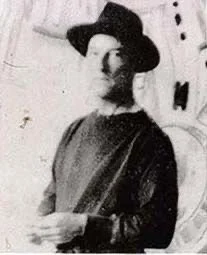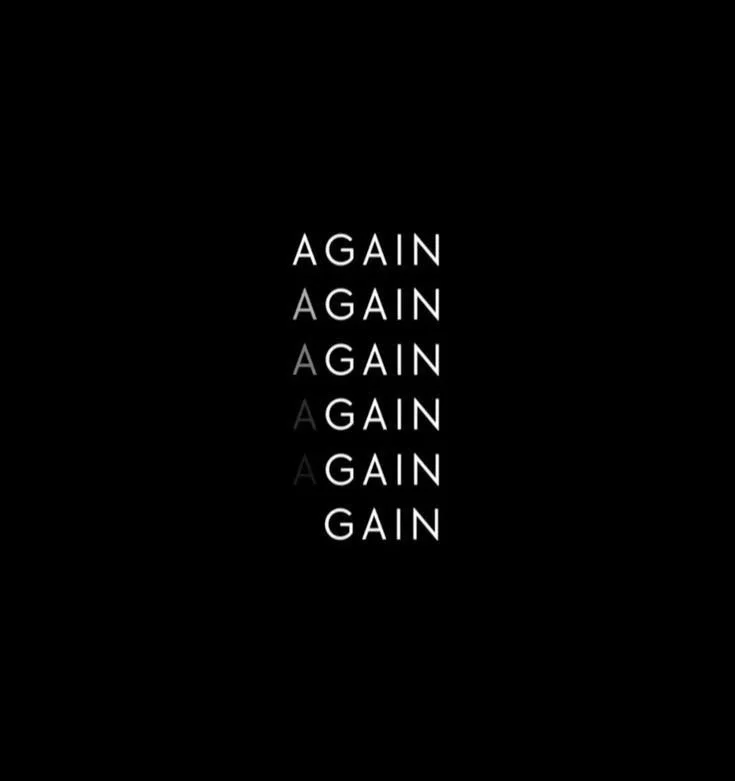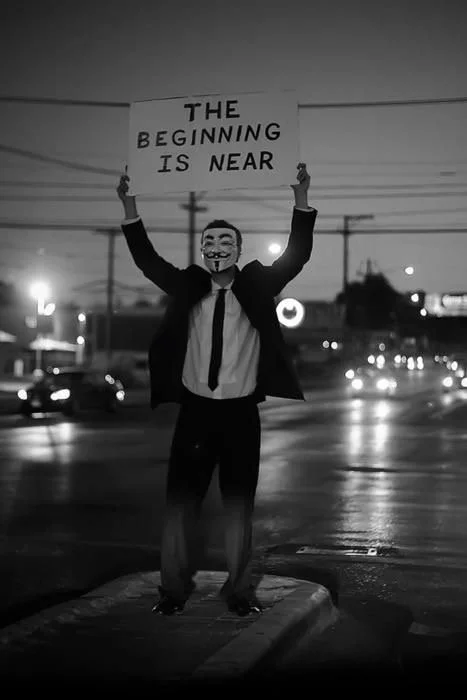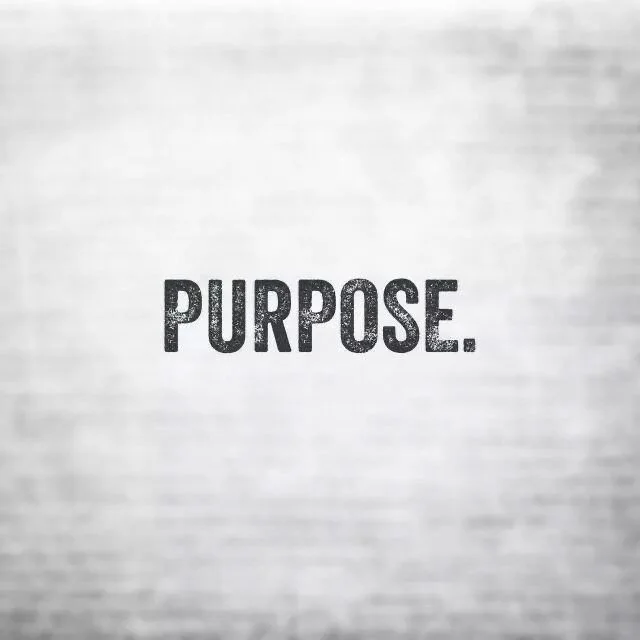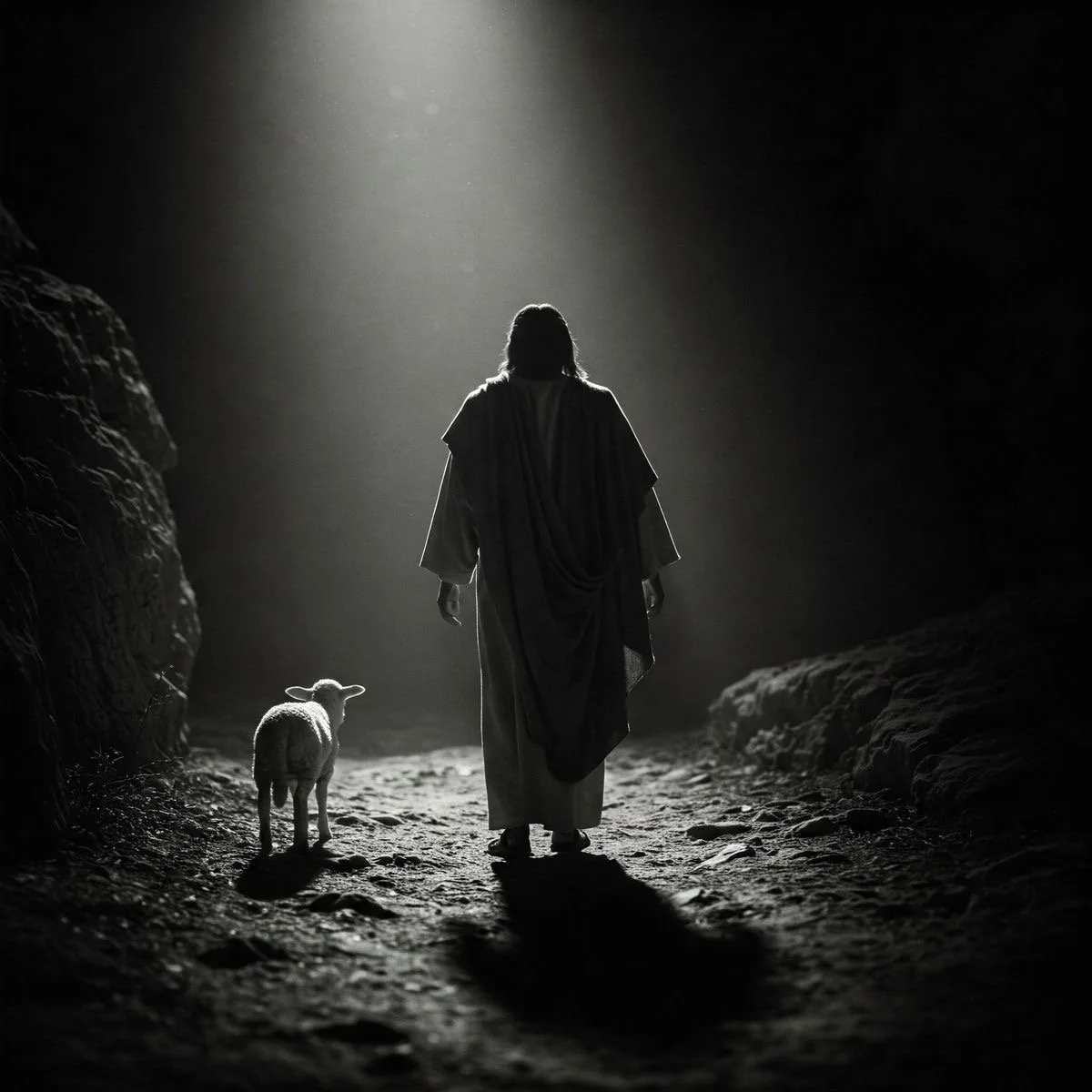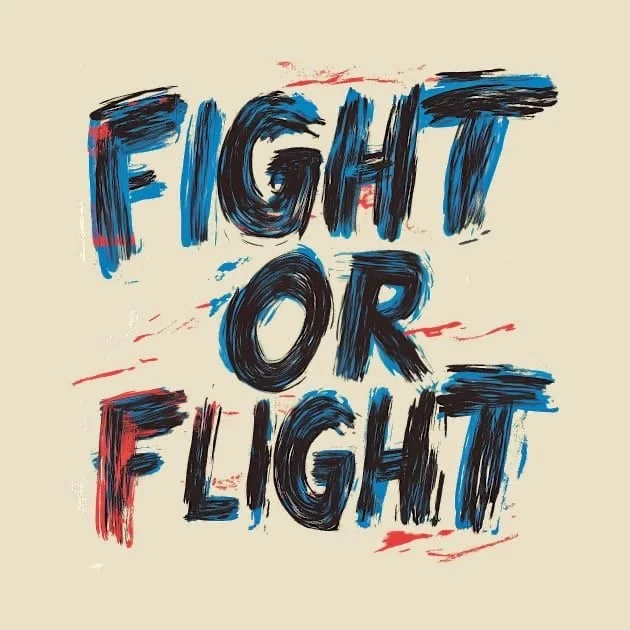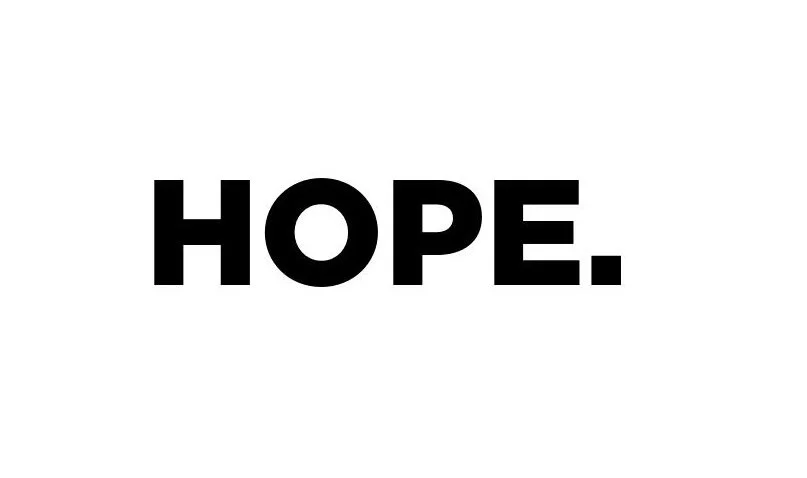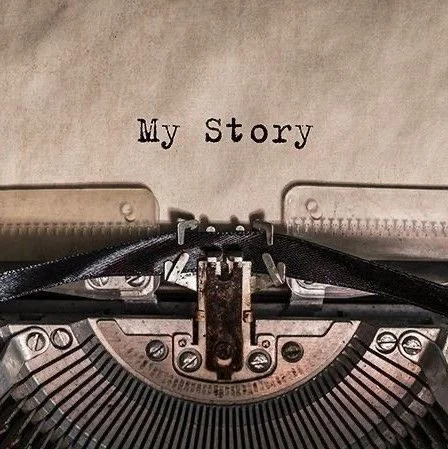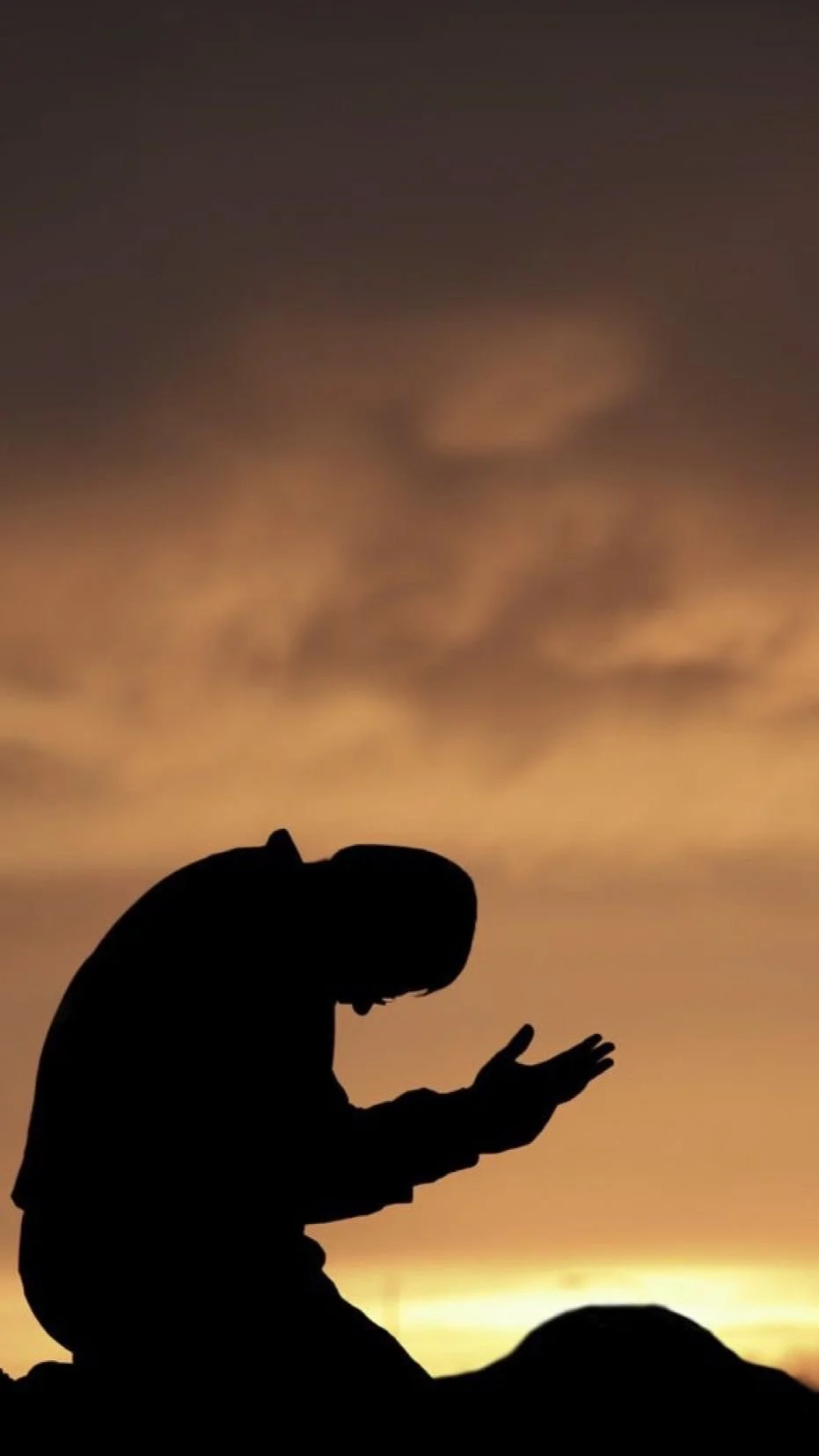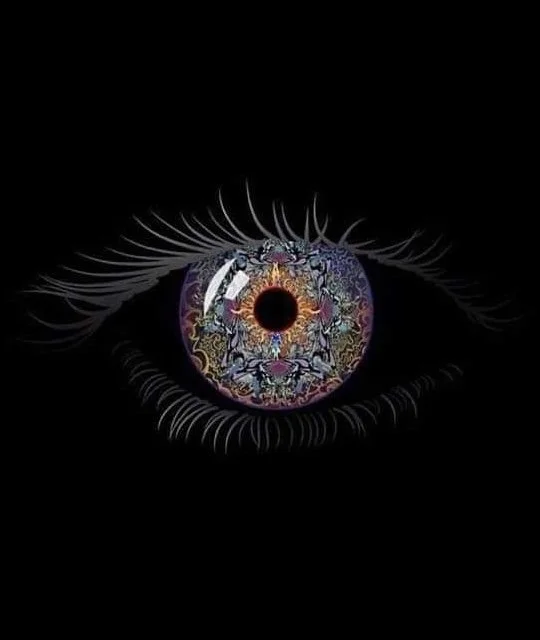Walter Anderson: The Man Who Painted the Soul of the Mississippi Coast
Walter Anderson didn’t wait for perfect conditions. He rowed 12 miles to a deserted island, painted through hurricanes, and created every single day—whether anyone was watching or not.
It wasn’t just talent that made him legendary.
It was habits—daily immersion, seeking inspiration, preserving what matters, creating for both others and himself, and living by values instead of validation.
His art captured the soul of Mississippi’s coast. His life can help you capture the soul of your own goals.
When the rest of the Gulf Coast slept, Walter Anderson rowed toward the moon. His small green skiff cut through the dark waters of the Mississippi Sound, bound for a strip of land that would become his cathedral—Horn Island. For nearly two decades, he returned again and again, seeking not escape, but immersion.
Anderson wasn’t just an artist. He was a witness, a recorder, and, in his own way, a prophet of the coast. His life’s work would become one of the greatest love letters ever written to Mississippi’s beaches, dunes, and wildlife.
From City Walls to Barrier Islands
Born in 1903 in New Orleans, Anderson studied in New York and Philadelphia, excelling at the Pennsylvania Academy of the Fine Arts. He traveled to France on scholarship, studied cave paintings, and absorbed the old masters. Yet, the noise of the art world never felt like home.
He returned to Ocean Springs, Mississippi, working at Shearwater Pottery, the family business founded by his brother Peter. It was here that he began shaping a vision rooted not in galleries, but in the raw pulse of nature.
The Island Pilgrimages
By the late 1940s, Anderson had developed a ritual. He would load supplies into his small boat, row or sail the 12 miles to Horn Island, and disappear—sometimes for weeks.
On the island, he painted with the urgency of a man trying to catch the tide before it slipped away. Pelicans, sea oats, crabs, storms—every brushstroke captured the coast’s fragile heartbeat. His journals reveal a mind in deep conversation with the world around him: “In order to realize the beauty of humanity, we must realize our relation to nature.”
In 1965, he even rode out Hurricane Betsy on Horn Island, sheltering beneath his overturned skiff, watching the sea foam swirl like “ravishing jewelry.”
Murals for the People, Murals for the Soul
Anderson’s art lived in two worlds—public and private.
Public: The Ocean Springs Community Center murals (c. 1950–52) stretch across 3,000 square feet, blending coastal history, mythology, and astronomy. For just one dollar, Anderson gave the city a masterpiece that few understood at the time but would later define the town’s cultural identity.
Private: Inside his Shearwater cottage, Anderson painted the “Little Room” murals—a sunrise-to-night cycle inspired by Psalm 104. The ceiling blooms with a giant zinnia, the walls alive with Gulf Coast life. He never invited anyone in while he lived. Only after his death was the room discovered and moved to the Walter Anderson Museum of Art (WAMA).
The Documentary That Opened the Door
In 2021, the PBS documentary Walter Anderson: The Extraordinary Life and Art of the Islander pulled back the curtain. Directed by Anthony Thaxton and narrated through interviews with his children and art historians, the film revealed never-before-seen artwork, personal photographs, and stories from those who knew him best.
It showed not just the art, but the sacrifice—his choice to live on the margins so he could live at the center of creation itself.
A Lasting Gift to the Mississippi Coast
Anderson’s work is more than beautiful—it’s an archive. Every pelican in flight, every sand dune’s curve, every storm cloud he painted preserved a part of the Gulf Coast’s history and ecology. In an era before environmental conservation became a movement, he was documenting the soul of a place people assumed would always be there.
Today, the Walter Anderson Museum of Art in Ocean Springs keeps that soul alive. Visitors can stand inside his Little Room, see the brushstrokes that once surrounded him, and walk out to the shore knowing exactly what drew him back again and again.
From the Coast to Your Life: 5 Habits Walter Anderson Can Teach Us
Walter Anderson’s story isn’t just an artist’s biography—it’s a manual for living with purpose and passion. Here’s what you can take with you:
Immerse Daily – Anderson painted every day, no excuses. Protect time for your craft or goal like it’s oxygen.
Go Where Inspiration Lives – He physically sought out Horn Island. Put yourself in the environments that awaken your creativity.
Preserve What Matters – His paintings became a record of a vanishing coast. Document your own journey; don’t trust memory to hold it all.
Create for Others & Yourself – His public murals served the community; his private murals fed his soul. Balance giving and self-fueling work.
Live by Values, Not Validation – He didn’t stop when people didn’t “get” him. If it matters to you, keep going.
Your Challenge This Week
Walter Anderson didn’t wait for perfect conditions—he rowed into storms, painted in solitude, and trusted his vision.
Pick one thing this week you will do every day, no matter what.
Not because it’s easy. Not because anyone will clap for you.
Because it’s yours—and because the act of doing it will leave a mark, just like Anderson’s brushstrokes on the Mississippi coast.
Powerless or Empowered? Rethinking Recovery in a Generation That’s Paying Attention
Recovery isn’t just about quitting a substance. It’s about rebuilding a life. But what happens when the very places meant to help—the meetings, the circles, the steps—become a cycle of contradiction? Are we really powerless? Or are we handing the most vulnerable over to a system built on broken logic and borrowed phrases?
Recovery isn’t just about quitting a substance. It’s about rebuilding a life. But what happens when the very places meant to help—the meetings, the circles, the steps—become a cycle of contradiction? Are we really powerless? Or are we handing the most vulnerable over to a system built on broken logic and borrowed phrases?
What If Recovery Is Sending Mixed Messages?
Imagine this:
You're newly sober. Hurting. Searching.
You walk into a room full of strangers… and the first thing they tell you is that you're powerless. That you must surrender to a higher power—which can be anything: a tree, the ocean, a doorknob.
Then, you start hearing phrases like:
"Fake it 'til you make it."
"Once an addict, always an addict."
"Your best thinking got you here."
But you’re also told to believe in something greater, to take action, to be responsible for your choices.
Wait… aren’t those contradictory?
Flawed People Teaching the Flawed
Many recovery groups are built by people with lived experience—yes, that’s powerful. But without balance, it becomes an echo chamber of recycled pain. No trauma-informed care. No neuroscience. Just personal stories passed off as gospel.
Experience alone isn’t wisdom.
Pain alone isn’t qualification.
We need more than “I made it, so listen to me.”
Powerless? Or Just Not God?
Step 1 of AA says we’re “powerless.” But the Bible says:
“God has not given us a spirit of fear, but of power, love, and a sound mind.”
— 2 Timothy 1:7
That’s not weakness. That’s Holy Spirit empowerment.
To say we’re powerless forever is to deny the transforming power of Christ.
We may start at surrender—but we’re not meant to stay there. Recovery is not meant to be a permanent state of identity-based defeat.
The Problem with “Higher Power”
When “higher power” becomes a vague placeholder, it dilutes what true recovery demands: truth and transformation. If we allow people to define their source of strength as “whatever feels comforting today,” we’re setting them up to collapse when that source fails.
We’re not talking about controlling religion—we’re talking about clarity.
If the power that raises the dead is offered to you, why settle for a tree?
We Need a Better Model
What the next generation needs isn’t:
Guilt-based sobriety
Shame-saturated testimonies
Lifelong labels of “addict”
They need:
Purpose
Identity rooted in truth
Mentorship that balances testimony with education
A path out of the pit—not a permanent seat in it
Final Word: You Are Not Powerless Anymore
If you’re in Christ, you’re not weak.
If you’re seeking truth, you’re not crazy for questioning old models.
And if you’re building something new—you’re not alone.
“If God is for us, who can be against us?” – Romans 8:31
Author’s Note:
Recovery Is Not a Script
Sitting in a circle repeating the same script may feel safe. But safety isn’t the same as growth. What if we trusted ourselves to outgrow the label? What if we built recovery spaces rooted in:
Psychology
Compassion
Training
Purpose
Creativity
Self-trust
You are not your addiction.
You are not your past.
You are not your last meeting.
“Freedom is what you do with what’s been done to you.”
— Jean-Paul Sartre
Maybe you’ve done the work.
Maybe now it’s time to do the becoming.
The Calendar Is Finally Yours
Birthdays make us think about time—how much we have left, how much we’ve wasted, and where we should be by now. But this year, I’m looking at my life with joy, freedom, and gratitude. My calendar is finally my own.
Birthdays make us think about time—how much we have left, how much we’ve wasted, and where we should be by now. But this year, I’m looking at my life with joy, freedom, and gratitude. My calendar is finally my own.
Birthdays have a way of drawing us into reflection. We think about where we should be, how far we’ve come, and yes—even how close we are to the end. But this year, I’m not weighed down by those thoughts. I’m carrying joy in my heart.
My calendar is free.
I’m not tied down to a marriage, a career, or a system that drains my energy. I’m free to fill my days with purpose—on my terms.
I still want those things—a mind at peace, a fulfilling career, and if God wills, a wife. I believe a man is not meant to walk through life alone, though I’ve been hard on marriage in the past. That came from my own failures in communication and commitment, built on the shaky ground of a life I wasn’t truly living.
As for work, I’ve enjoyed parts of my past career, but it’s no longer part of the formula for my future. I’m ready for something that gives back to me as much as I give to it.
So what will I put on my calendar now? Growth.
Volunteering. Getting fit. Reading more books. Eating cleaner. Building into my community. Leading young men the way I once needed to be led. Riding more bikes. And maybe, one day, buying a Porsche—not for the flash, but for the personal victory it would represent.
I also know I need rules—proven ones—but I refuse to live inside systems that look healthy on the surface yet drain life from the inside. Too many addiction groups, churches, and “respected” institutions are built to keep people in cycles rather than free them.
Today, I turn a year older. And I can honestly say, I’m optimistic. I’m proud of my faith in Jesus. I’m proud of my children, my grandchildren, and my family. And I’m grateful—for every open space on my calendar and every new opportunity God will fill it with.
God bless us as we move forward. God bless our country and its leaders.
Quote:
❝Your time is your life. Choose carefully how you spend it, and with whom.❝— Alan Cohen
You Haven’t Lost Your Edge—You’ve Outgrown the Old Arena
At some point, the applause quiets. The busy calendar empties. The roles you carried for decades don’t ask for you in the same way. That’s not failure—it’s freedom. You haven’t lost your edge. You’ve simply outgrown the old arena, and now the world is wide open for you to step into something that’s finally yours.
At some point, the applause quiets. The busy calendar empties. The roles you carried for decades don’t ask for you in the same way. That’s not failure—it’s freedom. You haven’t lost your edge. You’ve simply outgrown the old arena, and now the world is wide open for you to step into something that’s finally yours.
The Quiet Shift
For years, life filled your days. Work deadlines, responsibilities, schedules—it all gave structure and meaning. You didn’t have to think too hard about what came next because momentum carried you forward.
But then something changed. The urgency faded. The titles became routine. The calendar grew quieter. And now, you’re left with a new kind of silence—one that asks, what’s next?
The Old Scoreboard Doesn’t Count Anymore
Most of us were trained to measure worth by external metrics:
A packed schedule meant importance.
Being needed meant being valuable.
Staying busy meant staying alive.
But busyness was never the same as fulfillment. That’s why, even when you’ve done everything right, you can still feel restless. The truth is, you haven’t lost your purpose—you’ve just outgrown the framework that once held it.
A New Arena
This stage of life isn’t about proving yourself anymore. It’s about freedom—the freedom to decide what actually matters to you.
No one’s coming to hand you the sequel. The next chapter is yours to write.
The question is no longer, “What do they need from me?”
It’s, “What draws out the best in me?”
And the way forward isn’t endless analysis—it’s movement. Small steps. New experiments. Choices made from energy, not obligation.
Does this energize me or drain me?
Is it a “hell yes” or a “no”?
Does it matter if I don’t show up?
These are the questions that build a new compass.
The Invitation
You haven’t lost your edge—it’s still there. You just need a new arena to sharpen it.
The empty calendar isn’t a threat. It’s an open field. The world is wide, and for the first time, it’s fully yours to choose.
“It is not that we have a short time to live, but that we waste a lot of it.”
— Seneca“See, I am doing a new thing! Now it springs up; do you not perceive it? I am making a way in the wilderness and streams in the wasteland.”
— Isaiah 43:19
Call to Action
👉 Have you felt this shift? When the old scoreboard no longer counts, what does winning look like for you now? Share your thoughts below.
Daily Habit: “Put One Thing Back”
Little resets lead to big results.
Before you leave a room, put one thing back in its place.
🛠 Helps build discipline
🏡 Keeps the house tidy
🧠 Trains awareness
💭 Feels like a small win
💡 Symbolic: Restore order, even if it’s just a sock
“Little resets lead to big results.”
No Maps for Rivers
Why do we judge our journey like a river judging its curves?
What if every twist, slow drift, or rapid in your life was never a flaw—but a feature?
Why do we judge our journey like a river judging its curves?
What if every twist, slow drift, or rapid in your life was never a flaw—but a feature?
You Are Not Broken
You are not behind.
You are not “too much.”
You are a river.
Some days you bend.
Some days you roar.
Some days you barely move.
And all of it—every turn and flow—is part of your perfect design.
Don’t Straighten What Was Meant to Flow
We waste too much energy trying to move like someone else.
Comparing speed. Mimicking style. Judging every curve.
But rivers don’t compete. They carve.
They shape landscapes by being exactly what they are.
So maybe today’s permission is this:
Stop straightening. Start flowing.
💬 Share Your Curve
👉 What’s a part of your journey that once felt wrong, but ended up shaping who you are?
Drop it in the comments or email me: michaelking@kingofhabits.com
Not Welcomed: When Rejection Is a Revelation
If you’ve ever walked into a room and felt like the air shifted against you—this is for you. If you've been left out, shut down, or told you're "too much," maybe it’s not rejection. Maybe it’s a revelation. You weren’t made to fit in… you were made to wake up the room.
If you’ve ever walked into a room and felt like the air shifted against you—this is for you. If you've been left out, shut down, or told you're "too much," maybe it’s not rejection. Maybe it’s a revelation. You weren’t made to fit in… you were made to wake up the room.
The Pattern That Haunts Us
Some of us carry a quiet ache.
Not for success. Not for fame.
Just to belong.
But everywhere we go—church, job, family, friend circles—it feels like we’re out of sync. Like we showed up with a heart too open, a voice too loud, a presence too much.
“Why am I never welcomed?”
That question starts early.
For me, it started with my father.
Then school. Then marriage. Then band life.
Even now—in places built for healing and worship—I feel unseen or shoved aside.
Is It Me? Or Is It God?
I asked God this week, “Is there something wrong with me?”
What I heard back wasn’t shame. It was strategy.
“I’m not punishing you. I’m protecting the mission.”
What if the rooms we keep getting rejected from are the very ones we’re not meant to be in?
What if being shut out is really God setting you apart?
The Unseen Gift of Unwelcomed Souls
Being unwelcomed does something to a man.
It forges him.
It burns off the need to please.
It sharpens discernment.
It deepens prayer.
You stop needing stage lights.
You start craving truth.
You don’t beg for seats at tables.
You build your own.
And suddenly… you realize:
You weren’t created to be accepted.
You were called to disrupt the pattern.
But Also—Look Inward
I won’t lie. There are still things I have to face.
Do I overpower conversations?
Am I over-involved to feel needed?
Do I talk more than I listen?
Am I addicted to being “the fixer”?
Humility doesn’t mean hating yourself.
It means owning your shadow—and bringing it into the light.
The Bigger Story
This isn’t just about me.
It’s for every man or woman who has ever sat in their car and said:
“Why does it always feel like I’m the outsider?”
Maybe because you are.
And maybe that’s not a curse.
It’s a commission.
Bottom Line
Don’t let rejection make you bitter.
Let it make you bold.
Don’t wait to be welcomed.
Start becoming the kind of person who welcomes others.
Because the most powerful people in the world are the ones who know what it feels like to be left out…
…and choose to never let anyone else feel that way again.
Verse:
“The stone the builders rejected has become the cornerstone.” – Psalm 118:22
When the Body Says Run: The Shocking Truth About Fight-or-Flight
You think fear is in your head? Think again.
Your body knows the threat before your mind catches up. From dry tears to lost breath, fight-or-flight doesn’t ask — it takes over.
You think fear is in your head? Think again.
Your body knows the threat before your mind catches up. From dry tears to lost breath, fight-or-flight doesn’t ask — it takes over.
We’re Not As In Control As We Think
Ever tried drinking water while angry? You can’t.
Ever tried taking a deep breath while panicking? You won’t.
Because your body isn’t asking for calm. It’s preparing for war.
Here’s what the fight-or-flight response really does when it takes over:
1. You can’t cry real tears
Your tear ducts shut down. Rage-crying feels dry and tight because the body doesn't register emotion — only emergency.
2. Your bladder might empty
In extreme fear, your body literally dumps “extra weight” to escape faster. This is primal, built for survival.
3. Digestion stops
That sick feeling in your stomach before a stressful moment? Blood is leaving your gut. Digestion is on hold.
4. Tunnel hearing kicks in
Your brain focuses on threat only. Conversations, names, music? Gone. It’s why you feel zoned out.
5. Time slows down
You’re not imagining it. Adrenaline sharpens awareness and increases perception speed. It feels like slow motion because you're catching more detail per second.
6. You lose fine motor skills
Can’t tie your shoes or open a door while panicking? That’s because your brain is powering your legs, not your fingers.
7. Skin goes pale
Blood gets diverted to vital organs and muscles. Your skin goes cold and white — not from emotion, but from instinct.
Quote to Sit With:
“You don’t rise to the occasion, you fall to the level of your training.”
— Archilochus
Verse to Anchor You:
“Be still, and know that I am God.”
— Psalm 46:10
Stillness doesn’t come naturally in chaos.
It must be chosen.
It must be trained.
The Bottom Line
Your body is built to survive.
But if you want to live — breathe.
Drink.
Be still.
And take the time to teach your body what safety feels like — so when chaos hits, it knows how to respond.
Grab the Jacket: How the Brain Handles Discomfort Without the Drama
Your body already knows how to handle discomfort—so why does your heart forget? From cold air to cold relationships, the same logic applies: if you’re cold, grab the jacket. Don’t overthink the signal. Respond to it. Life gets lighter when we learn to meet our needs instead of ignoring them.
Your body already knows how to handle discomfort—so why does your heart forget? From cold air to cold relationships, the same logic applies: if you’re cold, grab the jacket. Don’t overthink the signal. Respond to it. Life gets lighter when we learn to meet our needs instead of ignoring them.
The Everyday Wisdom of Being Cold
You step outside in a t-shirt and shorts. The air hits—cold and sharp. Without thinking, you reach for a jacket.
No self-blame. No shame. No long discussion.
You were cold. You fixed it.
That’s threat assessment in motion—your brain picking up a problem and directing your body to solve it. No drama. Just correction.
The Emotional Side of That Jacket
Here’s where it hits deeper.
What if the discomfort isn’t physical?
What if it’s emotional, spiritual, or relational?
Do you still grab the jacket—or do you sit in the cold and call it normal?
Most of us endure emotional cold far too long. We overthink. We suppress. We try to be strong when we really just need to warm up. But strength isn’t ignoring discomfort—it’s responding to it.
Life Applications of This Simple Truth
You feel distant in your relationship? Reach out. Say what needs to be said.
You’re spiritually dry? Don’t wait for a miracle—crack open the Bible, get quiet, and listen.
You feel unseen or unvalued? Don’t isolate—engage, ask questions, and remind yourself of your worth.
The cold isn't the problem. Sitting in it is.
It’s Not a Crisis. It’s a Signal.
Lack of love, joy, clarity, or peace is not failure—it’s a signal.
Your body, your spirit, your mind—they're all saying: “Something’s off.”
You don’t need to fix everything. You just need to respond.
Start with warmth. Start with truth. Start with movement.
“If you are distressed by anything external, the pain is not due to the thing itself, but to your estimate of it—and this you have the power to revoke at any moment.”
— Marcus Aurelius“If any of you lacks wisdom, let him ask God, who gives generously to all without reproach, and it will be given him.”
— James 1:5 (ESV)
Bottom Line
If you’re cold—grab the jacket.
If your soul is cold—grab the truth.
Life isn’t waiting to fix you. It’s waiting for you to respond to what you already know deep down.
You were never meant to live in the cold.
☀️ SUNDAY RESET: 12 Habits That’ll Make You Unstoppable (or at Least Less Scatterbrained)
Feeling foggy lately? Try this Sunday reset. 12 simple daily habits to sharpen your mind, boost your focus, and get back in control — without overhauling your life. Start small. Stay consistent. Clarity loves momentum.
Some days you’re sharp. Other days… you're staring at the fridge wondering why you're in there.
Here’s your Sunday morning pick-me-up — 12 simple habits that’ll help you lock in, chill out, and actually rememberwhy you walked into that room.
1. 💧 Hydrate Like You Mean It
Tall glass of water right when you wake up. Your brain is basically a raisin until you do.
2. ⏰ Wake Up Before the Noise
Early morning peace is like a cheat code. More clarity. Less chaos. Just you and that quiet stillness.
3. 📵 No Phone for 30 Minutes
Don’t start your day in a scroll-hole. Let your mind warm up before the world shouts at it.
4. 📓 Three-Thing Plan
Write down 3 things you want to get done today. That’s your mission. Keep it simple. Win early.
5. 🏃♂️ Move Something
Stretch. Walk. Pace while brushing your teeth. Movement wakes your body and clears the cobwebs.
6. 🍳 Eat Like You’ve Got Stuff to Do
Clean, simple meals. Protein. Fruit. Eggs. Things with real names, not 37 ingredients and a mascot.
7. ☀️ Touch the Sun
Step outside. Even for a minute. Light hits your eyes, your brain goes, “Ohhh, right… let’s live.”
8. 🧘♂️ Five Minutes of Nothing
Sit. Breathe. Listen to the fridge hum. Your mind needs white space to think straight.
9. ✍️ Brain Dump
Jot down whatever’s swirling in your head. Ideas, to-dos, overthinking — get it on paper, not stuck in your skull.
10. 📖 Read Something Real
Ten minutes. Book, Bible, magazine, article. Fuel the mind before the memes.
11. ☕ Cut the Caffeine at 2PM
It’s hard to be clear-headed when your sleep is a train wreck. Protect the wind-down.
12. 🌙 Sleep Like It’s Sacred
Screens off. Lights low. Slow down. Focus starts with real rest.
Pick 3 today. Try them this week.
And if it all goes off the rails? That’s fine. Sunday’s comin’ back around.
You’re not broken. You’re building.
🌱 The Companion Named Hope
We often think of hope as a distant outcome or a reward for endurance. But what if hope is something we carry with us—through the mess, the unknown, and the everyday moments that quietly shape us? This article explores the deeper meaning of hope, not as a guarantee, but as a steady companion. Rooted in real life and reinforced by Scripture, this is a reminder that you don’t need to feel hopeful to practice it. You just need to keep walking.
By Michael King
In a world built on results, deadlines, and guarantees, hope often feels like a fragile thing—something reserved for the naïve or the desperate. But what if that’s all wrong?
What if hope isn’t about wishing?
What if it’s about walking?
Hope Isn’t a Result—It’s a Relationship
We’ve been taught to treat hope like a reward. You hope something turns out well. You hope things change. You hope life works out.
But the kind of hope that endures doesn’t hang on outcomes. It isn’t a finish line. It’s a companion.
One you carry with you into hard seasons, messy transitions, or long rebuilds.
Real hope shows up without proof.
Hope and Grief Can Coexist
There’s a quiet kind of hope that isn’t loud or shiny. It doesn’t erase pain—it walks with it.
This kind of hope holds hands with:
Grief – the ache for what was
Love – the drive to keep going
Uncertainty – the space where growth begins
Hope doesn’t ask you to be okay. It just asks you to keep showing up.
Rooted Hope Starts in the Dirt
You don’t need a grand reason to believe in something better. Sometimes hope looks like:
Watching birds return to your fence
Taking your shoes off and feeling the ground
Cooking a meal with care
Checking in on someone who hasn’t been okay
These things aren’t flashy. But they’re sacred. And they remind us that life responds to attention.
Hope is found in the doing, not just the dreaming.
The Practice of Hope
Here’s the truth: you don’t have to feel hopeful to practice hope.
You can:
Speak kindness even if you're bitter
Create even when you’re tired
Pray even when you’re unsure
Start again, even when it hurts
That is hope. Not blind belief. But daily courage.
Final Thought
Hope doesn’t promise ease. It promises presence.
It doesn’t erase the unknown. It says, “Walk with me anyway.”
You don’t need the full plan.
You don’t need a map.
You just need one step…
and a companion called hope.
📖 Holding onto Hope: A Word from Scripture
“Let us hold unswervingly to the hope we profess, for He who promised is faithful.”
— Hebrews 10:23 (NIV)
🔍 What It Means:
"Hold unswervingly" means to stay steady—don’t drift or let go when life gets uncertain.
"The hope we profess" refers to the deep-rooted faith we live by, not just in words but in how we show up each day.
"He who promised is faithful" reminds us that our hope isn’t built on feelings or circumstances—it's anchored in a God who keeps His word.
💡 The Bottom Line:
Even when we feel shaky, hope doesn’t have to be.
We don’t hold on to hope because everything is perfect.
We hold on because God is—and He’s not letting go of us.
Momentum Beats Memory: Break Free From the Loop of Who You Used to Be
If you’ve ever whispered, “I thought I’d be further by now,” you’re not alone—and you’re not broken. That weight you feel isn’t failure. It’s a signal. The truth? Your memory of the past may be what’s holding you back. Let’s change that—starting with one win today.
By Michael King – King of Habits
Published: July 25, 2025
If you’ve ever whispered, “I thought I’d be further by now,” you’re not alone—and you’re not broken. That weight you feel isn’t failure. It’s a signal. The truth? Your memory of the past may be what’s holding you back. Let’s change that—starting with one win today.
🔓 Why You Feel Stuck
The most dangerous form of comparison is the one we rarely notice: comparing ourselves to a past version that may not even be real.
Our brains remix the past every time we recall it. But here’s the twist—those memories are often wrong.
The mind remembers how it felt, not always what happened. This can trap you in a mental loop of shame, guilt, or regret.
You’re not stuck—you’re just attached to an outdated version of you.
💡 The Reframe That Changes Everything
Growth doesn’t come from perfect plans or perfect timing.
It comes from momentum—small, consistent wins stacked on top of each other.
You don’t need to fix everything today. You just need to win one battle: the next step.
Small wins are greater than perfect pasts.
Let go of the myth that your success has to look like your memory of someone else’s highlight reel—or your own.
🔥 The Thermostat Truth
You will only rise to the level of what you believe you deserve.
This is your internal thermostat.
If you think success is "too much" for you, your subconscious will sabotage it and bring you back to comfort—even if that comfort is struggle.
🧠 Mental Rehearsal: Train Your Mind Forward
Your body and brain operate together. If your body is in the present but your mind is still defending the past, change won’t stick.
Visualization, journaling, and affirmation aren’t fluff—they’re training tools for the brain.
Here’s the formula:
Vision (Future Self) + Action (Daily Win) = Alignment.
🛠️ Tools You Can Use Today
Write a letter to the old version of you. Thank them. Then let them go.
Journal from the future. Write like you already made it. What does life look like?
Celebrate today’s smallest win. Momentum isn’t flashy. It’s steady.
📚 Recommended Read (No Affiliations):
Title: Atomic Habits by James Clear
Why: It teaches how identity and small behaviors shape long-term change. Perfect if you're rebuilding, refocusing, or restarting.
💭 Final Thought
The past should be a reference point—not a residence.
You are not your story. You are the author.
Start writing the next chapter, even if it’s one sentence at a time.
From Actor to Author: Taking Back the Pen of My Life
For years, I played a part in a story I didn’t even write. I drifted in a current I built—routine, reactive, and passionless. But after hitting a wall, I stopped performing and started writing. I took ownership. I picked up a pen, not to romanticize the past, but to rewrite the future—with purpose. This is what happens when grace meets accountability.
I used to just act in my life. I wasn’t the director, the writer, or even aware of the script. I played the same scenes over and over—wake up, go to work, react to problems, settle for routine, make no plans, and repeat.
The “flow” I was in? I made it. Then I got stuck in it.
No growth. No vision. No fire. Just movement without momentum.
“The unexamined life is not worth living.”
— Socrates
But life has a way of waking you up. For me, it took failure. Not a small stumble—but a fall that forced me to face myself. And in that moment, I realized something simple:
I had to stop acting and start writing.
So, I grabbed a pen. Not literally at first, but with intention. I started journaling. Planning. Praying. I began to write a new script—not one based on regret, but one fueled by redemption.
I’m still in the early chapters. It’s messy. Honest. Hopeful. But here’s what I know:
I didn’t get this pen on my own.
I didn’t earn a second chance.
It was only by the grace of God I’m writing today.
Lamentations 3:40 (ESV) – “Let us test and examine our ways, and return to the Lord!”
The Way Forward: Turning Fear Into Fuel
What if the very thing holding you back is actually the path forward?
This post dives into the power of fear, mindset, and mentorship—blending ancient wisdom, Ivy League research, and biblical truth to help reshape your direction.
By Michael King
“What stands in the way becomes the way.” — Marcus Aurelius
What if the very thing holding you back is actually the path forward?
This post dives into the power of fear, mindset, and mentorship—blending ancient wisdom, Ivy League research, and biblical truth to help reshape your direction.
The Barrier Is the Beginning
We all have those thoughts:
“I’m not good enough.”
“That life isn’t for people like me.”
“I missed my window.”
And yet, we want more. For ourselves. Our children. Our community.
But many of us stop where fear starts.
So here’s the truth:
The barrier is often the blueprint.
Harvard Business Review notes:
“The most successful people aren’t those who avoid failure—they’re the ones who build from it.”
We stay stuck in “idle” not because we’re lazy—but because we’ve never seen another gear.
Success Leaves Clues
Without guidance, access, or examples, most people settle.
But abundance often follows alignment—alignment in values, discipline, and yes, faith.
Yale University states:
“Students with mentors and exposure to real-life examples of success are significantly more likely to pursue advanced education and entrepreneurship.”
So what if your life experience could become someone else’s education?
The Men I Admire Now
At this stage in life, I’ve noticed something:
The men who seem to have peace, purpose, and prosperity are almost always:
Married
Rooted in faith
Active in their church and community
It didn’t come easy—but it came through commitment.
They didn’t avoid the hard road—they led on it.
Biblical Backbone
Paul wrote:
“Show yourself in all respects to be a model of good works.” — Titus 2:7 (ESV)
This is the calling.
Not perfection—but presence.
Not power—but purpose.
Your Move
Let’s build a new way today.
A better one.
Not just for us—but for those watching.
The grind isn’t one path.
It can be limitless.
It can be legacy.
Where Are the Men?
We live in a world full of nonprofits, support groups, and crisis centers. But what if many of them exist because men didn’t show up? This isn’t about blame—it’s about responsibility. About rising. About leading.
by Michael King
We live in a world full of nonprofits, support groups, and crisis centers. But what if many of them exist because men didn’t show up? This isn’t about blame—it’s about responsibility. About rising. About leading.
The Silent Crisis No One Talks About
Today, the U.S. has 1.8 million nonprofit organizations. They help the homeless. Feed children. Support single mothers. Mentor young boys.
But here’s the hard truth:
Many of these programs are plugging holes left by absent men.
That truth hits home because I’ve been guilty too.
I’ve checked out. I’ve coasted. I’ve avoided responsibility.
But I’m not here to stay in guilt—I’m here to grow.
To lead.
To become the kind of man God is calling me to be.
📊 The Numbers Don’t Lie
Let these stats sink in:
1 in 4 children in the U.S. grow up without a father (U.S. Census Bureau)
85% of youth in prison had no dad in the home (National Fatherhood Initiative)
63% of youth suicides come from fatherless homes (CDC)
90% of runaways and homeless kids come from fatherless homes (NCF)
This isn’t about shame. It’s about awareness.
My Personal Reckoning
I’m not writing from a mountaintop—I’m writing from the battlefield.
I’m a man in the making. I want to do better.
And I believe that if good men get better,
and lost men stop running,
we can build something stronger than systems.
We can build homes again.
What We Really Need
Awareness – Stop pretending everything’s fine
Faith – Ground ourselves in something deeper than ego
Council – Get wisdom, not just opinions
Community – Brotherhood sharpens
Leadership – Not flashy… but faithful
We don’t need more gurus. We need more men of grit. Men who lead by showing up. Every day.
🛠️ What We Can Do
We can’t fix everything. But we can start here:
Get in shape
Pray and listen
Apologize and forgive
Mentor a young man
Be consistent at home
Speak truth, not just opinions
Trade comfort for responsibility
📖 Truth to Stand On
“Be watchful, stand firm in the faith, act like men, be strong.”
— 1 Corinthians 16:13
Final Thought
This isn’t a war on men—it’s a wake-up call for men.
If we show up, step up, and grow up, we might just see a world with fewer broken systems—because we stopped being broken ourselves.
The Strongest Man Bows Low
We often think of strength as standing tall, being tough, staying in control. But the real test of power might be something far more humbling—bending the knee, and lifting the hands, in surrender to God.
By Michael King
📩 michaelking@kingofhabits.com
The strongest thing a man can do...
is bow low.
Not in defeat—but in surrender.
Surrender to the Creator who formed him, shaped him, and called him for more.
It’s uncomfortable, especially for men raised to believe emotion is weakness.
The voices echo:
“Be tough.”
“Don’t cry.”
“Don’t let them see you bend.”
But that’s not truth. That’s trauma disguised as toughness.
Bending the knee to God isn’t weakness—it’s spiritual strength training.
Like a compound lift in the gym, it doesn’t make you soft—it makes you solid.
You drop ego, pride, fear, and control—and you rise up stronger in faith.
And the Hands?
Humans raise their hands instinctively.
A child says, “Pick me up.”
A student says, “I’m ready to speak.”
A drowning person pleads, “Help me.”
It’s connection. Surrender. Trust.
In worship, it becomes holy.
Raising your hands is your spirit saying,
“Abba… I need You.”
It’s not a performance—it’s a posture.
📖 “I will therefore that men pray every where, lifting up holy hands, without wrath and doubting.”
— 1 Timothy 2:8
The Takeaway:
I’ve spent years trying to prove my strength.
But now I believe the strongest I’ll ever be… is on my knees, with my hands raised.
I’m still learning. Still lifting.
But this kind of strength?
It’s eternal.
#FaithOverFear #BiblicalManhood #SpiritualStrength #MenOfFaith #HumbleAndStrong
The Health Hustle: Why Simplicity Still Wins
We’ve turned health into a hustle.
Supplements, routines, schedules, hacks—but is it necessary?
This blog cuts through the noise to bring you back to what really works:
real food, daily movement, water, and rest.
Let’s stop chasing trends and start honoring the simple rhythm we were created to live by.
Author: Michael King
Email: michaelking@kingofhabits.com
We live in a world where fitness advice sounds like a sales pitch.
“Take this supplement.”
“Avoid fruit.”
“Eat six times a day.”
“Train fasted—but only before 10 a.m.”
“Never do cardio if you want to gain muscle.”
It’s overwhelming.
But is it necessary?
The Industry vs. the Individual
The global wellness market is worth over $4.5 trillion.
Supplements alone? A $177 billion industry.
Brands thrive on confusion.
You second-guess real food because someone with abs said fruit sugar is bad.
You stop walking because a TikTok trainer told you it kills gains.
But data tells a different story.
A massive review published in Annals of Internal Medicine (2019) found that most supplements offer no benefit for longevity or disease prevention when compared to nutrients from whole foods.
Even the World Health Organization, Harvard, and the CDC agree:
Daily movement
Hydration
Real, unprocessed food
Sleep
Stress management
No magic pills. No $200-a-month stack. No 7-phase workout split.
What Nutrients Do We Really Need?
The human body needs around 30 essential nutrients:
Vitamins A, C, D, E, K
B vitamins
Calcium, iron, magnesium, zinc, selenium
Omega-3 fatty acids
Essential amino acids (protein)
Where do we get these?
Fruit (yes, even with sugar)
Vegetables
Nuts and seeds
Lean meats, eggs, dairy
Whole grains
Water
Supplements? They’re a backup, not a blueprint.
Eat like a human—not like a lab experiment—and you're covered.
Exercise: It Doesn’t Have to Be That Complicated
Men in the ancient world didn’t do bro splits or drink protein shakes.
They moved. They worked. They lifted, carried, and hunted.
Historical records and skeletal analysis show well-developed musculature from:
Walking everywhere
Manual labor
Eating what they grew or hunted
No gyms
No snacks every two hours
Their lives were hard. Their strength was real.
We don’t need their hardship—just their simplicity.
The Simple Health Formula
Here’s what works—every time:
Mindset: Choose better. Start small. Improve daily.
Consistency: 3–5 days a week. Not sexy, just steady.
Resistance Training: 2–3x/week. Use your body, bands, or weights.
Cardio: 30 mins/day — walk, bike, stretch, move.
Water: Half your bodyweight in ounces per day.
Nutrition: If it grows, walks, swims, or flies — it’s probably good.
So… Is the Industry Selling Us Fear?
Yes—and no.
We’ve evolved in tools and information, but not biology.
Modern tech, supplements, and circadian hacks can optimize—but they aren’t required.
“Don’t trade the wisdom of simplicity for the confusion of marketing.”
— Michael King
💡 What If You’re Not Getting the Right Nutrition?
If you feel like something’s off—energy, sleep, digestion—consider some extra support.
⚠️ Disclaimer: I’m not a certified health coach. This is entertainment only, based on personal experience, professional guidance, and data.
When in doubt, ask your doctor or nutritionist.
🔥 Top 3 Trusted Supplement Brands (High-Quality, No BS)
1. Thorne Research
NSF Certified for Sport
Highly bioavailable forms
Trusted by functional medicine docs
2. Pure Encapsulations
Hypoallergenic, clean ingredients
Great for sensitive systems
Used in clinical settings
3. Garden of Life – myKind Organics
Certified organic, whole food-based
Vegan options
Non-GMO, no synthetic fillers
👴 Men Over 50: Key Nutrients to Prioritize
By 50+, the body absorbs nutrients less efficiently. Focus on:
Vitamin D3 + K2 – Bone and heart health
Magnesium – Muscle, sleep, blood pressure
Omega-3s – Brain, joints, inflammation
B12 (Methylcobalamin) – Energy and nerves
Zinc – Testosterone and immune function
CoQ10 – Heart support (especially if on statins)
Probiotics – Gut health and absorption
Protein intake – Maintain muscle mass
🧠 Tip: Aging isn't weakness—it’s wisdom that needs fuel and movement.
💪 Strength Then vs. Strength Now
Ancient Era:
Daily life was exercise
Food was natural, seasonal
Strength came from survival
Leanness came from scarcity
Movement was constant
Health knowledge came from experience
Muscles were useful, not flaunted
Modern World:
Jobs are sedentary — workouts are scheduled
Food is overly processed and available
Strength is pursued for looks
Overeating is easy — weight gain is common
We sit more than we move
Health is marketed and monetized
Muscles are idolized — but disconnected from function
✍️ Author’s Note
I’ve battled food addiction my whole life.
Not just overeating—but obsessing, labeling everything good or bad.
I’ve tried every “fix” and still felt stuck in shame and confusion.
Then one day, it hit me—God didn’t make this complicated.
Real food. Real movement. Real rest.
We don’t need to be perfect. We need to be present.
We don’t need another rule. We need rhythm.
This blog is part of my healing.
Writing it reminds me: simplicity is power.
— Michael King, King of Habits
📧 michaelking@kingofhabits.com
Loaded at Birth, Aimed by Life, Fired by Choice
We don’t get to choose our genetic makeup, but we do get to choose what we do with it. Your genes may set the stage, but your mindset, choices, and environment determine the story. This blog unpacks the idea that while we may be born into certain battles, we still hold the power to rise above and rewrite our outcome.
By Michael King • www.kingofhabits.com
"Genes load the gun. Environment pulls the trigger."
That statement hit me hard. It speaks to something deep: the tension between nature and nurture.
We’re all born with a mix of DNA, personality traits, tendencies—even traumas that aren’t ours but were passed down. But that’s just the loading of the gun. The rest? That’s where we come in.
🧬 The Science Behind the Saying
Genetics account for 30-60% of our predisposition to mental health issues like depression, anxiety, or addiction.
But environmental factors—like trauma, support systems, stress, and lifestyle—heavily influence whether those genes get “switched on.”
According to epigenetics, your life choices can influence how your genes express themselves. Meaning: you are not doomed by your DNA.
🧠 A Quote to Chew On
"It is not in the stars to hold our destiny but in ourselves." – William Shakespeare
🔑 Solutions – Turning Triggers Into Triumph
Create the right environment.
Surround yourself with people, habits, and places that nurture growth. Even if your childhood was chaos, you get to design your adulthood.Interrupt the cycle.
Just because your parents did it, doesn’t mean you have to. Generational pain can stop with you—but only if you're intentional.Take radical responsibility.
Your life might not be your fault, but your future is your responsibility.Build faith-based mindset tools.
Prayer, journaling, scripture, and self-reflection build spiritual muscle. They teach you to respond, not react.Rewrite your inner script.
Start replacing “I can’t” with “I’m learning.” Instead of “This is who I am,” say “This is who I’m becoming.”
Teachable Moment:
This isn’t about blame. It’s about power.
You may be carrying loaded weapons—trauma, addiction, rage, fear—but no one forces your hand to fire. Through Christ, community, and conscious choices, you can walk a different path.
Final Thought:
Your story may have started without your permission, but the ending? That’s up to you.
📩 michaelking@kingofhabits.com
📚 Read more daily blogs at www.kingofhabits.com
🔖 #MentalHealth #Habits #FaithOverFear #BreakTheCycle #PersonalGrowth #RedemptionIsReal
The Weight of Half-Truths
You will never outrun the chains you keep hidden. Freedom isn't found in comfort. It's found in honesty—brutal, bloody honesty. Until then, you're only managing your prison.
“You can only be as free as you are honest.” That line hit me like a freight train.
We think we’re free because we’ve shared “some” of the story. We’ve unpacked the battles, maybe even helped others heal—but we still keep that one thing tucked away. Untouched. Justified. Buried. Safe.
That’s not freedom. That’s selective surrender.
True strength? It’s in vulnerability. That’s not weakness—it’s weightlifting for the soul. It’s Godly. It’s mature. It’s a silent war cry to say: I quit running my own life.
Jesus never asked for your resume. He asked for your heart. Raw. Wrecked. Real.
Recovery isn’t just about staying sober. It’s about staying honest. Honest with God. With others. With yourself. Especially yourself.
Every secret you carry has weight. And most of us are limping with backpacks full of shame, regret, guilt, and pride.
But Jesus…
He says, “Come to me, all who are weary and burdened, and I will give you rest.” (Matthew 11:28)
I’ve learned the hard way—freedom doesn’t come from traction. It comes from surrender. When I finally stop running my own life and let God take the wheel… that’s when rebirth begins.
I don't want to just survive. I want to live. But that starts with dying to myself.
Email:
📧 michaelking@kingofhabits.com
#KingOfHabits #RadicalHonesty #RecoveryLife #JesusHeals #SurrenderStrong #StoicFaith #FaithInTheFire #LetGoLiveFree
“Waste no more time arguing what a good man should be. Be one.” – Marcus Aurelius
“Confession is not about guilt. It’s about freedom.” – Michael King
“The truth will set you free.” – Jesus (John 8:32)
When Lifting Others Lifts You
Real strength doesn’t rise by pushing others down. It shines through humility, self-awareness, and quiet integrity. In relationships and business, the high road isn’t just the moral one—it’s the only one that leads to peace.
by Michael King
“You can easily judge the character of a man by how he treats those who can do nothing for him.”
— Johann Wolfgang von Goethe
Don’t Degrade to Elevate
We don’t win by degrading others.
We win by lifting others—even when we’re hurting, even when we’re disappointed, even when we’re walking away.
If your ego or business strategy relies on someone else’s weakness,
you’re not strong—you’re just louder.
Your Work Should Speak Louder Than Your Mouth
Pointing out poor quality or weak performance by someone else may seem like a sales strategy...
But what if your character, your craft, and your consistency were your sales pitch?
“Real recognizes real.”
You don’t have to drag others down to stand tall.
The Relationship Mirror
Why do we speak badly about people we once loved?
Sometimes they were always that person.
Other times, we ignored the signs.
Either way, bitterness doesn’t bring healing.
Even if you had no fault in it—let your exit be honorable.
That’s where the freedom is.
When the Culture Doesn’t Fit
Sometimes you can’t fix a broken workplace.
You won’t change the leadership. You won’t shift the culture.
Don’t waste your growth trying to repair what was never designed to nourish you.
Bow out gracefully. Take the lesson. Move forward with your peace.
The Mirror Moment
I’m guilty of all of this.
I’ve spoken from pride. I’ve defended what I should’ve left. I’ve pointed instead of pausing.
But I’m learning...
The goal isn’t to be right. The goal is to be whole.
Closing Thought:
Let your work and your walk speak louder than your words.
Lift others—even the ones who couldn’t lift you.
📩 Want to reach out or share your story?
Email me: michaelking@kingofhabits.com
